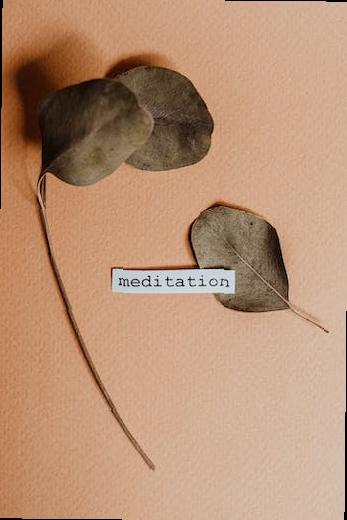Uncategorized
Mdma Definition Word
MDMA, scientifically known as 3,4-methylenedioxy-methamphetamine, is a compound that has gathered much attention within the medical community due to its potential therapeutic properties. Commonly referred to as ecstasy or Molly, MDMA is a synthetic drug that alters brain chemistry, leading to feelings of increased empathy, euphoria, and heightened sensory perception. While initially developed for psychiatric use, MDMA’s recreational popularity in the past led to it being classified as a Schedule I drug in many countries. However, recent studies have sparked a renewed interest in exploring its medical applications.
Research suggests that MDMA, when used in controlled settings and under appropriate medical supervision, may hold promise as a potential treatment for conditions such as post-traumatic stress disorder (PTSD) and anxiety disorders. The empathogenic and entactogenic effects brought on by MDMA can foster a sense of trust, enhance communication, and promote emotional healing. Psychedelic-assisted therapy utilizing MDMA as an adjunct has shown preliminary positive outcomes in helping patients to process traumatic experiences, reduce avoidance behaviors, and improve overall well-being. As investigations into the therapeutic benefits of MDMA continue, its potential to revolutionize mental health treatment is being increasingly recognized.
Definition
MDMA, also known as 3,4-methylenedioxymethamphetamine, is a substance that falls under the category of phenethylamine and amphetamine classes. It is a synthetic compound that has gained attention for its potential medical uses. MDMA is commonly referred to as ecstasy or Molly, and it is known for its mood-altering effects.
The definition of MDMA relates to its chemical structure and properties. It is an empathogenic drug that primarily affects the serotonin system in the brain. MDMA increases the release and inhibits the reuptake of serotonin, resulting in increased feelings of empathy, emotional openness, and heightened sensations. It also affects other neurotransmitters such as dopamine and norepinephrine, which contributes to its stimulant-like effects.
In a medical context, MDMA has demonstrated potential in the field of psychiatry. Research suggests that it may have therapeutic effects in the treatment of post-traumatic stress disorder (PTSD) and some anxiety-related disorders. The substance is believed to facilitate psychotherapy by promoting trust, empathy, and emotional introspection, which are crucial elements of the therapeutic process.

It is important to note that the medical use of MDMA is still under investigation and is not yet approved by regulatory bodies for clinical use. While early studies show promise, further research is needed to establish its efficacy, safety, and potential side effects.
Chemical Composition
MDMA, which stands for 3,4-Methylenedioxymethamphetamine, is a compound with a complex chemical composition. It is a synthetic substance that belongs to the amphetamine class of drugs. The molecular formula of MDMA is C11H15NO2, and its chemical structure consists of a central ring with a combination of carbon, hydrogen, oxygen, and nitrogen atoms.
In terms of its composition, MDMA is derived from a precursor compound called safrole, which is extracted from certain plants. Through a series of chemical reactions, safrole is transformed into MDMA. The resulting compound undergoes purification to remove impurities, resulting in a highly pure form of MDMA.

The chemical composition of MDMA plays a crucial role in its pharmacological effects. It acts primarily by affecting neurotransmitters in the brain, particularly serotonin, dopamine, and norepinephrine. The molecule’s structure enables it to cross the blood-brain barrier and interact with receptors in the brain, leading to heightened feelings of euphoria, increased empathy, and enhanced sensory experiences.
It is important to note that the chemical composition of MDMA varies depending on factors such as synthesis method, purity, and adulteration. Impurities or contaminants can alter the overall composition and potentially affect the drug’s effects and safety. Therefore, for medical use or when prescribed by a healthcare professional, it is crucial to obtain MDMA from reliable and regulated sources to ensure purity and minimize potential risks.
Pharmacological Effects
MDMA, also known as ecstasy or Molly, is a substance that falls under the category of entactogens. When taken orally, it has a range of pharmacological effects on the human body. It primarily acts by altering the levels of certain neurotransmitters, such as serotonin, dopamine, and norepinephrine, in the brain.

One of the main effects of MDMA is its ability to increase the release of serotonin, a neurotransmitter that is involved in regulating mood, appetite, and sleep. This increase in serotonin results in feelings of euphoria, increased sociability, and heightened sensitivity to sensory stimuli. Many users report experiencing a sense of emotional closeness and empathy towards others while under the influence of MDMA.
Additionally, MDMA also affects the release and reuptake of other neurotransmitters like dopamine and norepinephrine. These actions contribute to its stimulating effects, which can lead to increased energy, enhanced mood, and heightened alertness. Some users also report a decrease in anxiety and feelings of relaxation.
It is important to note that the pharmacological effects of MDMA vary depending on several factors, including the dose taken, individual sensitivity, and the environment in which the drug is consumed. However, its ability to induce intense positive emotions and enhance social interactions has made it the subject of interest in the field of psychotherapy, particularly in the treatment of post-traumatic stress disorder (PTSD).
Medical Uses
MDMA, also known as ecstasy or Molly, is a psychoactive drug that has gained attention for its potential medical uses. In recent years, researchers have been exploring the various therapeutic benefits that MDMA may offer in a controlled medical setting. Although primarily known as a club drug, MDMA shows promise in the treatment of several mental health conditions, particularly post-traumatic stress disorder (PTSD).
Studies have suggested that MDMA-assisted psychotherapy can help individuals with PTSD by promoting a sense of emotional openness and empathy. MDMA works by increasing the release of certain neurotransmitters in the brain, such as serotonin and oxytocin, which are associated with feelings of pleasure, trust, and social bonding. This chemical release may facilitate the therapeutic process by allowing individuals to revisit and process traumatic memories in a more neutral and compassionate state.

Another potential medical use of MDMA is in the treatment of anxiety and depression, particularly in patients who have not responded well to traditional treatments. The drug’s ability to enhance mood and promote feelings of well-being may provide relief for individuals suffering from these debilitating conditions.
It is important to note that the use of MDMA for medical purposes is still in the experimental stages, and more research is needed to fully understand its potential benefits and risks. Additionally, the administration of MDMA for medical purposes should always be conducted in a controlled setting under the guidance of trained professionals.
Legal Status
MDMA, also known as methylenedioxymethamphetamine, is a psychoactive substance that has gained attention for its potential therapeutic benefits in the medical field. However, it is important to note that the legal status of MDMA varies depending on the country and jurisdiction.

In some countries, MDMA is classified as a controlled substance and is illegal to possess, distribute, or use outside of medical research or approved therapeutic settings. This means that the possession or recreational use of MDMA can result in legal consequences, including fines and imprisonment.
On the other hand, there are certain cases where MDMA has been approved for medical use. In these instances, it is generally used under strict supervision and administered by healthcare professionals in clinical settings. The medical use of MDMA is often associated with treatments for post-traumatic stress disorder (PTSD) and other mental health conditions.
It is worth mentioning that the legal status of MDMA is constantly evolving, as research and studies continue to shed light on its potential benefits. As more evidence accumulates regarding the therapeutic properties of MDMA, there is a growing movement to reconsider its legal classification, with some advocating for the recognition of its medical potential and the development of appropriate regulations.
Overall, the legal status of MDMA is complex and varies across different countries. While it is important to adhere to the legal framework in your jurisdiction, it is also essential to be aware of ongoing research and discussions surrounding MDMA’s medical use, as this may influence future changes in its regulatory status.
Overall Summary
In conclusion, the marvels of MDMA, also known as ecstasy or Molly, are truly remarkable when it comes to its medical applications. This powerful substance, derived from chemical compounds, has shown great potential in psychotherapy, particularly in the treatment of post-traumatic stress disorder (PTSD), anxiety, and depression. The empathogenic and euphoric effects of MDMA create an environment conducive to healing and deep personal introspection, making it a promising tool in therapeutic settings.
Furthermore, MDMA has demonstrated the ability to enhance interpersonal connections and improve communication in couples and individuals seeking relationship therapy. Its ability to increase empathy and promote feelings of trust can help patients break down barriers and address unresolved issues in a safe and supportive environment. As research progresses, we continue to unlock the full potential of MDMA as a tool for mental health intervention, offering hope to many individuals suffering from various psychological conditions.

